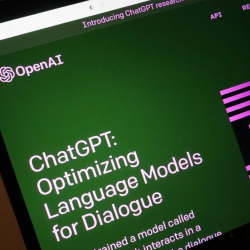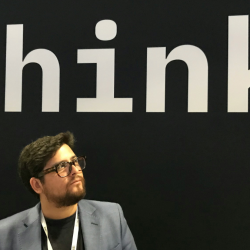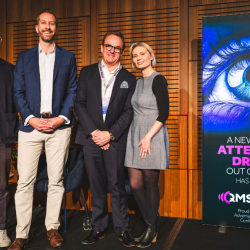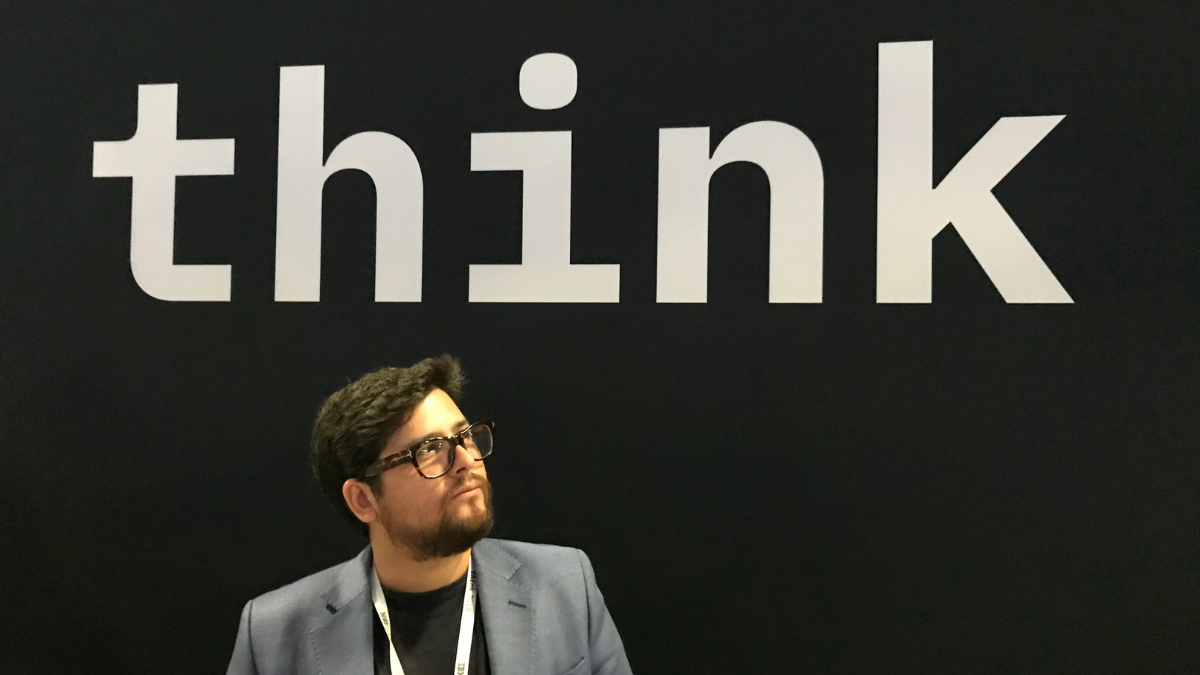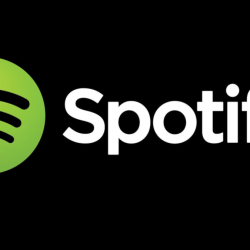Thirty years ago, marketing changed forever.
The beginning of mass internet adoption heralded an entirely new and different era of communication, bringing with it remarkable new opportunities to connect with, engage and inform our audiences in ways previously unimaginable.
Fast-forward to the present day and this transformation is complete — we are all now connected with our customers and prospects on dozens of channels and devices 24/7.
But here’s the problem: so is everyone else.
What we now face is a crisis not of connecting with our audiences, but of getting their attention against the ever-growing volume of other competing voices in the market.
As the Nobel prize-winning economist Herbert Simon wrote:
“What information consumes is rather obvious: it consumes the attention of its recipients. Hence a wealth of information creates a poverty of attention, and a need to allocate that attention efficiently among the overabundance of information sources that might consume it.”
And this is exactly the problem communicators face today — how to get attention amongst an overabundance of information sources.
Marketers and businesses are feeding into this picture through what we call the ‘content chaos’ cycle – the creation of material that’s hard to read, poorly targeted, and does not adequately support business needs and goals. It’s a trap, and one that causes creators to compete at ‘who can shout the loudest’.
The pandemic has only exacerbated the issue. As our use of the internet has doubled, more businesses have increased their online presence and content quantity.
But of course, this surface level tactic doesn’t address the real challenge of attention. To find success, marketing leaders, content strategists, and sales enablers need to enter the fascinating world of neuroeconomics.
Winning the battle for audience attention in such a crowded and increasingly connected marketplace requires new tools and ways of thinking
Put simply, neuroeconomics is the intersection between neuroscience, psychology, and economic thought. It applies these three fields in combination to solve old problems in new ways and engineer better business outcomes — including how to win more audience attention in an increasingly busy and information saturated world.
There’s a quiet neuroeconomics revolution going on as brands like Amazon, Nestlé and Lexus begin to apply these principles to their digital content and messaging. By doing so, they’re seeing up to 10x more attention from their audiences and 5x more positive brand perception. The value of pulling their audiences away from the hectic, noisy battleground of communication through such techniques and getting them to spend quality time with their materials is clear.
Moreover, by using sophisticated measurement, these same brands are finding new ways to convert this attention into tangible, valuable business outcomes. Whether that be more test drive bookings for an electric car launch, greater conversion rates on calls to action or increased audience intelligence to drive more effective future campaigns.
Neuroeconomics is enabling these businesses to elevate their strategies, whether it’s in marketing or sales, recruitment or education, the possibilities are transformative. As marketers, we can see its influence in the rise of sharable sustainability campaigns or connected social media outreach.
To summarise: in a world drowning in information, simply making and distributing materials and messaging is no longer enough.
We need to get serious about what matters: attention. Because attention is the valuable, finite resource which must be used to drive trust, relationships, and action.
And neuroeconomics provides a great opportunity to win more of it, and thereby provide more value to our audiences and deliver better outcomes for our businesses.
Featured image: Nestle stories, West Africa / Twitter
